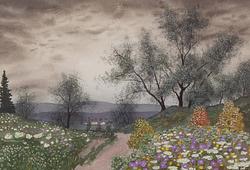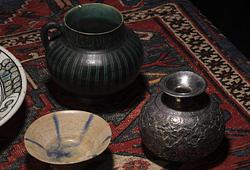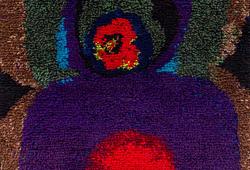Josef Frank
A mahogany serving trolley, Svenskt Tenn, Sweden, model nr 470.
On castors. 79 x 43,5 cm, height 60 cm.
This model was designed in 1932.
Minor wear.
Alkuperä - Provenienssi
Hildur Hansson (1912-1999)
Hildur Hansson was born in Southern Sweden. Eventually she was married to Erik Hansson (b. 1906) but unfortunately she was widowed when Erik died in the Finnish Winter war 1930-1940. Hildur was left with their only child, Ingemar. Hildur Hansson had early on become good friends with Estrid Ericson (1894-1981), founder of Svenskt Tenn, and hence started to collect objects from Svenskt Tenn. An interest that continued over the years and their home was filled with some very special pieces of pewter as well as furniture from Svenskt Tenn. When Ingemar Hansson grew up he continued to cultivate the interest for items from Svenskt Tenn he had inherited from his mother. The collection comprises lots nr 329-377.
Kirjallisuus
Monica Boman (ed), "Estrid Ericson - Orkidé i Vinterlandet", Carlsson bokförlag, 2000. Compare the same trolley (with a brass handle) in the Estrid Ericson livingroom in Stockholm 1964, pp 116-117.
Suunnittelijat
Josef Frank was born in Austria and studied architecture in Vienna. As an architect, he worked with private home areas, villas and apartment buildings. In 1925 he started his own interior design firm Haus und Garten together with two architect colleagues. In connection with the advance of the Nazis, he emigrated to Sweden and was employed in 1934 at Svenskt Tenn. After the outbreak of World War II, Josef Frank, who came from a Jewish family, was forced into exile in New York. At Svenskt Tenn, he made an impact on the product range for four decades; especially when it comes to furniture and fabric prints.
Lue lisää




































